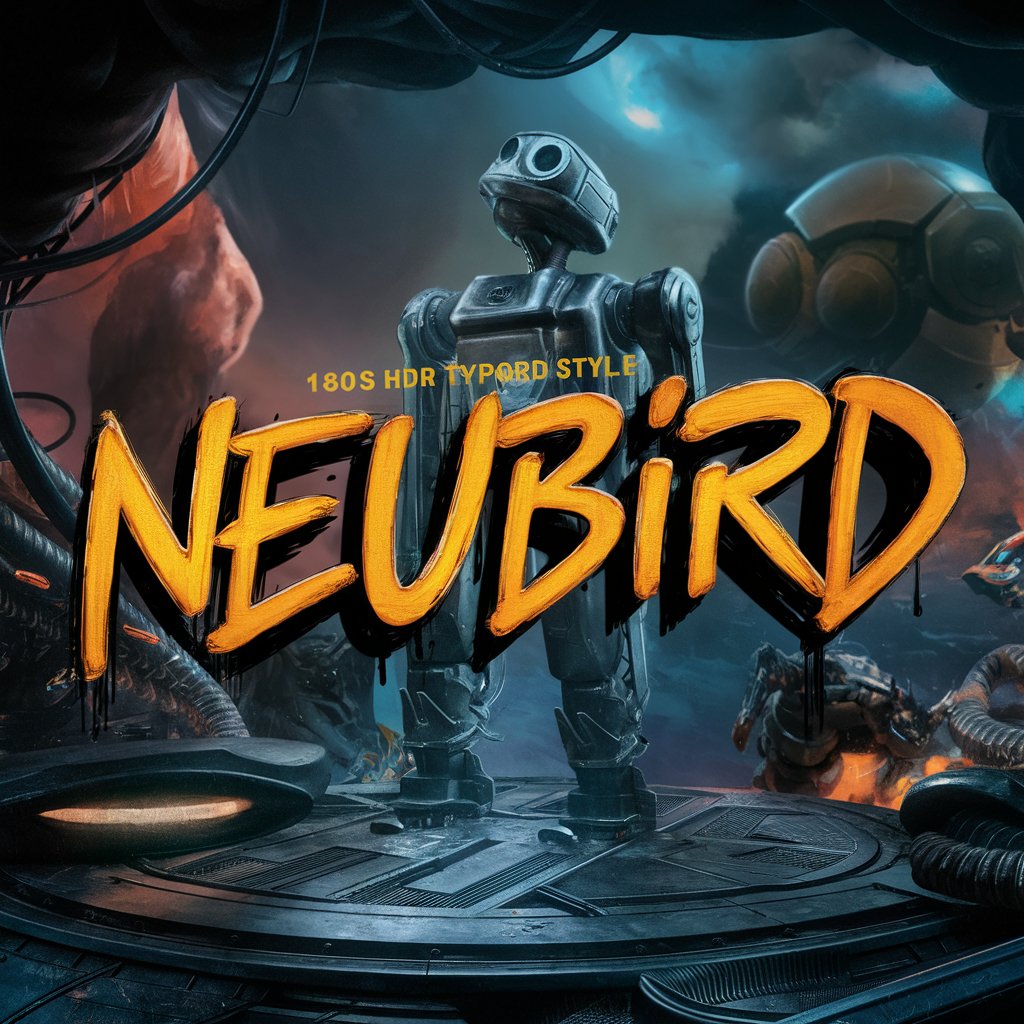
All Hail the New King of Open-Source AI: Meta Introduces LlaMA3
Other AI News
-
Groq’s New AI Chip Powers Meta’s LLaMA 3 with Unprecedented Speed, Challenging Industry Giants
Groq, a Silicon Valley startup, has unveiled a powerful AI processor achieving significant inference speeds of 800 tokens per second with Meta’s LLaMA 3 model, indicating a major advancement in AI hardware capabilities. This performance, if substantiated, could disrupt current market leaders like Nvidia by providing a more efficient, faster alternative for deploying large language models. Groq’s chip architecture bypasses traditional design constraints to focus on the specific demands of deep learning, offering potential energy and cost savings crucial for sustainable, large-scale AI applications.
The company’s novel Tensor Streaming Processor design is purpose-built for AI, diverging from conventional CPU and GPU architectures. This strategy aims to reduce latency and power consumption dramatically, enhancing the performance of AI applications in real-world scenarios. Groq’s success could accelerate the adoption of its technology, especially as AI models grow larger and more businesses seek efficient computational solutions. The progress demonstrates the intensifying competition in AI hardware, with startups like Groq poised to challenge established players.
-
Meta’s Megalodon Model: Pioneering Beyond Transformers for Efficient Large-Scale Language Processing
Meta and the University of Southern California have developed a new machine learning model called Megalodon, aimed at addressing the limitations of the Transformer architecture, specifically its high memory use and computation time for large inputs.
The Megalodon model, using a technique called Moving Average Equipped Gated Attention (MEGA), reduces complexity from quadratic to linear, enabling processing of much longer inputs effectively. It has shown promising results in expanding context windows without substantial increases in resource demands, potentially surpassing current Transformer-based models in efficiency and effectiveness.
-
Microsoft’s VASA-1 AI: Revolutionizing Content Creation with Talking Headshots
Microsoft has unveiled VASA-1, an AI framework that transforms static human headshots into dynamic videos that can talk or sing, demonstrated vividly with an animated Mona Lisa rapping. The framework requires minimal input—a single headshot and an audio file—yet it produces complex animations with synchronized lip movements and facial expressions. This development signifies a major step in AI-driven content generation, merging minimal input with high-quality output, though Microsoft emphasizes its cautious approach to avoid the potential for misuse in creating deepfakes.
VASA-1 serves as a research demonstration rather than a market-ready product, showcasing Microsoft’s capability to generate lifelike virtual avatars. While the technology provides a glimpse into future applications that could benefit education, accessibility, and therapeutic areas, Microsoft remains wary of the ethical implications, choosing not to release VASA commercially to prevent its potential misuse in creating misleading deepfake content.
-
Salesforce Augments Slack AI with Smart Summaries and Multilingual Expansion
Salesforce is advancing its AI features within Slack, emphasizing smart recaps and increased language support to streamline workplace communication. With the introduction of AI-generated daily summaries, users can efficiently catch up on essential discussions without manually sifting through each channel. This enhancement is designed to simplify information processing and maintain engagement across global teams.
Furthermore, the inclusion of Japanese and Spanish, with more languages on the horizon, showcases Salesforce’s commitment to broadening the accessibility of its AI tools. This expansion aims not only to enhance user experience but also to adapt to the diverse linguistic needs of global enterprises, making Slack a more inclusive platform for international collaboration.
-
Dataminr Unveils ReGenAI: A Fusion of Predictive and Generative AI for Enhanced Real-Time Analytics
Dataminr introduces ReGenAI, a novel framework combining predictive and generative AI to enhance real-time information processing. ReGenAI autonomously generates accurate and timely updates by interpreting continuous data streams, offering dynamic event alerts as situations evolve. This capability marks a significant evolution from traditional AI applications that rely on static prompts, facilitating a more adaptive approach to information management.
Further, ReGenAI leverages Dataminr’s proprietary large language models trained on over a decade’s worth of data, enabling the system to synthesize and recommend actions based on the latest developments. By integrating predictive insights with generative mechanisms, ReGenAI promises to redefine how organizations interpret complex, fast-moving information streams, potentially transforming decision-making processes across various sectors.
-
AI2’s OLMo 1.7 Update Expands Dataset and Refines Training for Enhanced AI Performance
AI2 has updated its Open Language Model, OLMo 1.7-7B, incorporating the Dolma 1.7 dataset to provide a broader and more diverse range of training data. This update extends the model’s context length from 2,048 to 4,096 tokens and includes a variety of high-quality sources aimed at enhancing the model’s performance in complex reasoning and specialized knowledge areas.
Additionally, OLMo 1.7 introduces a two-stage training curriculum that begins with a general training phase and transitions to a more focused training using a curated subset of high-quality sources. This method aims to fine-tune the model’s accuracy and adaptability, enhancing its performance on advanced benchmarks compared to its predecessors.
-
Brave Enhances Search Privacy with AI-Powered Answer Engine
Brave has launched a new AI-enhanced feature within its search engine, aiming to provide real-time answers while prioritizing user privacy. Unlike similar offerings from giants like Google and Microsoft, Brave’s “Answer with AI” integrates generative AI to deliver not only links but also direct answers to user queries. This feature supports multiple languages and includes diverse response types such as text, informational cards, and images.
Moreover, Brave’s approach distinguishes itself by not collecting user queries or creating profiles, maintaining its commitment to privacy. The search engine continues to evolve with tools like an AI assistant and a summarizer, and while currently free, a premium version may be introduced in the future.
-
Stability AI Debuts Stable Diffusion 3 API and Introduces ‘Stable Assistant’ for Enhanced AI Interactivity
Stability AI has officially launched the Stable Diffusion 3 API, marking a significant advancement in their generative AI capabilities. This release not only improves image quality and typography through novel AI techniques but also introduces the Turbo model for faster processing. Alongside this, Stability AI offers an early preview of “Stable Assistant,” a chatbot aimed at integrating text and image generation in real-time, signaling a leap towards more interactive and multimodal AI applications.
Simultaneously, Stability AI is enhancing its infrastructure through a strategic partnership with Fireworks AI, which specializes in optimizing machine learning model performance. This collaboration is set to boost the inferencing speed of the Stable Diffusion 3 API, aiming to provide the most efficient service in the market. Moreover, Stability AI continues to commit to the open AI movement, planning to allow broader access to its model weights for developers and enterprises, promising ongoing improvements and expansions.
-
Thomson Reuters Launches CoCounsel: AI-Enhanced Legal Tool for Streamlined Research and Drafting
Thomson Reuters has introduced CoCounsel, an AI-driven platform designed to revolutionize legal workflows by harnessing GPT-4 for advanced document analysis and drafting. Developed through the acquisition of legal AI startup Casetext, CoCounsel leverages a vast proprietary database to ensure accuracy and relevance, mimicking professional workflows to produce high-quality legal documents.
CoCounsel’s innovation lies in its ability to confine AI reasoning to trusted data, thereby enhancing reliability while addressing specific legal queries and tasks. This approach not only streamlines complex legal research but also ensures the outputs meet the stringent standards required in legal settings.
-
Nvidia Unveils New Ampere GPUs, Elevating AI Design and Productivity Capabilities
Nvidia is broadening its GPU portfolio with the introduction of two new Ampere-based models, the RTX A400 and RTX A1000, tailored for AI design and productivity applications. These GPUs offer advanced AI and ray-tracing capabilities, meeting the growing demands of professionals needing higher compute power for complex projects. The RTX A400 enhances ray tracing and AI performance on desktops, while the RTX A1000 introduces these features into the RTX 1000 series, boosting processing power for creative and technical tasks.
The introduction of these GPUs is part of Nvidia’s strategy to infuse more AI capabilities into professional workstations, supporting a range of industries from digital content creation to complex engineering designs. Both GPUs offer significant improvements in terms of efficiency and performance, equipped with more Tensor Cores and better ray-tracing capabilities. This expansion not only accelerates workflows but also pushes the boundaries of what professionals can achieve with graphical computing.
-
Zyphra Launches Zamba, a Device-Friendly AI Model for Wider Accessibility
Zyphra Technologies introduces Zamba, a 7B parameter SSM-hybrid AI foundation model, aiming to decentralize AI by enabling it to run on various devices with lower inference costs. Zamba, built on Zyphra’s Mamba blocks and a global shared attention layer, is optimized for efficiency and broad accessibility, contrasting with larger, centralized models that require significant computational resources.
Zamba is designed to be lightweight enough to operate on personal devices without cloud dependency, addressing privacy concerns and reducing latency. Zyphra emphasizes that such localized AI models could be more responsive and cost-effective, providing a more personalized and immediate AI experience across devices.
-
AMD Launches New Ryzen Pro Processors to Power Next-Gen AI Commercial PCs
AMD has unveiled its latest Ryzen Pro Series processors, designed to enhance AI capabilities in commercial PCs. The new offerings include the Ryzen Pro 8040 Series for mobile devices and the Ryzen Pro 8000 Series for desktops, both based on AMD’s advanced Zen 4 architecture. These processors are engineered to deliver exceptional performance and efficiency, catering to the demands of professional environments that require robust computing solutions.
The Ryzen Pro 8040 and 8000 Series processors integrate up to eight high-performance cores and are built using cutting-edge four-nanometer technology, enabling significant advancements in AI processing and graphics. These processors also feature enterprise-grade security and manageability, making them ideal for handling sensitive data and complex tasks in corporate settings. Expected to be available through partners like HP and Lenovo in Q2 2024, these processors aim to set new standards for power and productivity in business computing.
-
Hugging Face Debuts Idefics2: Advanced Visual Language Model for Enhanced Multimodal Interaction
Hugging Face has launched Idefics2, an 8B parameter visual language model that improves upon its predecessor with enhanced OCR capabilities and optimized image processing. This model, known as Idefics2, supports higher resolution images without the need for resizing and incorporates advanced text recognition features.
It simplifies the architecture from Idefics1, focusing on better integration of text and image data. Idefics2 is trained on diverse datasets and is designed to handle complex multimodal tasks more efficiently.
-
Poe Innovates with Multi-Bot Chat to Spearhead the Conversational AI Marketplace
Poe, the AI chatbot platform by Quora, is enhancing its service with the introduction of multi-bot chat, facilitating simultaneous interactions with multiple AI models in one conversation. This feature enables users to merge diverse AI capabilities such as analytical reasoning and creative writing within a single thread, streamlining the user experience and broadening the practical use of conversational AI models. Additionally, Poe aims to transform into a central marketplace for conversational AI, akin to an “App Store,” by offering monetization opportunities for bot creators and planning an enterprise tier for businesses.
However, despite the innovative approach, Poe faces challenges including ensuring a distinct user experience that justifies a dedicated platform, maintaining quality control, and managing the high operational costs of running advanced AI models. These hurdles underscore the complexity of creating a sustainable ecosystem around conversational AI, but with strategic developments and its recent funding, Poe is positioned to potentially lead in the evolving bot economy.
-
ArenaX Labs Rolls Out ARC and SAI Platforms to Foster Innovation in AI Gaming and Research
ArenaX Labs has unveiled two new platforms, ARC and SAI, designed to enhance AI’s role in gaming and research. ARC, developed entirely in-house, not relying on public LLMs like ChatGPT, facilitates interaction between human players and AI avatars, enabling unique gaming experiences and multi-venue competition. It aims to maintain competitive integrity by allowing players to train AI through demonstration, reflecting their strategies and styles.
SAI, focused on artificial general intelligence, gamifies AI research to encourage innovative problem-solving. By transforming complex AI challenges into competitive games, it seeks to attract researchers and uncover hidden talent in the AI field, thereby fostering a more dynamic and engaging research environment.
-
Webflow Acquires Intellimize to Revolutionize Web Development with AI Personalization
Webflow has acquired Intellimize to enhance its web development capabilities with AI-driven personalization technologies. This acquisition enables Webflow to leverage Intellimize’s expertise in optimizing web content dynamically based on user interactions, aiming to improve user engagement and conversion rates on websites designed with its platform.
The integration of these advanced AI tools allows Webflow’s users to create more responsive and tailored web experiences, aligning with the growing demand for personalization in digital marketing and web design.
-
OpenAI Expands to Tokyo, Tesla Announces Workforce Reduction Amid Sales Challenges
OpenAI is expanding its global footprint by planning to open a new office in Tokyo and launching a Japanese version of its GPT-4 model, aiming to enhance its presence in the AI sector across Asia. The move reflects OpenAI’s strategic vision to tap into the vibrant tech ecosystem of Japan and strengthen its partnerships with local organizations and researchers, potentially unlocking new opportunities for collaboration and innovation.
Meanwhile, Tesla is reducing its workforce by over 10%, as announced by CEO Elon Musk, citing the need to eliminate redundant roles amid slowing sales and concerns about decreasing demand for electric vehicles. The layoffs come as Tesla grapples with challenges in scaling production and meeting its ambitious targets in an increasingly competitive automotive market.
-
LawHive Secures $12M Funding to Advance AI-Powered Legaltech Platform for Small Firms
LawHive, a legaltech startup catering to small law firms, has successfully raised $12 million in funding to bolster its AI-driven platform. The platform is designed to democratize access to legal services by utilizing artificial intelligence to streamline various legal processes, including document drafting, contract review, and legal research. With this infusion of capital, LawHive intends to expand its platform’s functionality, enhance its AI capabilities, and scale its operations to serve a broader base of small firms seeking efficient and cost-effective legal solutions.
The funding round signifies growing recognition of the importance of AI in the legal industry, particularly for smaller firms aiming to compete with larger counterparts. By leveraging technology to automate routine tasks and improve workflow efficiency, LawHive empowers small law firms to deliver high-quality legal services while reducing operational costs. As LawHive continues to innovate and expand its reach, it aims to redefine the landscape of legaltech solutions for small firms, enabling them to thrive in an increasingly competitive market.
-
BigPanda Unveils Groundbreaking Generative AI for Enhanced ITOps Management
BigPanda, a leading provider of IT Operations (ITOps) automation solutions, is making waves in the industry with its introduction of generative AI capabilities. This innovative move aims to revolutionize how IT operations teams manage and respond to incidents by leveraging AI-generated insights and recommendations. With this new feature, BigPanda is empowering organizations to streamline their incident management processes, enhance operational efficiency, and ultimately improve the overall reliability of their IT infrastructure.
The introduction of generative AI to the ITOps landscape signifies a significant step forward in the evolution of incident management practices. By harnessing the power of AI-driven automation, BigPanda enables IT teams to identify and resolve issues more swiftly and accurately, minimizing downtime and mitigating potential disruptions. This strategic initiative underscores BigPanda’s commitment to delivering cutting-edge solutions that address the evolving needs of modern IT environments, positioning the company as a trailblazer in the realm of IT operations automation.
-
Amazon Music Introduces Maestro: AI-Powered Playlist Generation for Personalized Music Discovery
Amazon Music is following in the footsteps of Spotify with the launch of its AI-powered playlist generator, Maestro. This new feature leverages advanced machine learning algorithms to curate personalized playlists for users based on their listening preferences, behaviors, and music history. By harnessing the power of AI, Amazon Music aims to enhance user engagement, satisfaction, and discovery within its streaming platform.
Maestro represents a strategic move by Amazon Music to stay competitive in the increasingly crowded music streaming market. By offering a personalized playlist experience akin to Spotify’s popular Discover Weekly feature, Amazon Music is seeking to attract and retain users by providing them with curated content tailored to their individual tastes and preferences. This AI-driven approach reflects a broader trend within the music industry towards leveraging technology to deliver more personalized and immersive music experiences to listeners.
-
Neubird Secures $22 Million to Advance AI Solutions for Optimizing Complex Cloud Environments
Neubird, a startup specializing in generative AI solutions for complex cloud environments, has secured $22 million in funding to further develop its innovative platform. The company’s AI-driven technology aims to streamline cloud operations and optimize performance by automating tasks such as resource allocation, workload management, and infrastructure optimization. With this latest funding round, Neubird is poised to expand its reach and continue enhancing its AI solution to meet the evolving needs of businesses operating in the cloud.
The investment in Neubird underscores the growing demand for AI-powered tools that can address the challenges of managing and optimizing cloud environments at scale. As organizations increasingly rely on cloud computing for their IT infrastructure, the ability to efficiently manage and optimize cloud resources has become a critical priority. Neubird’s generative AI solution offers a promising approach to addressing these challenges, enabling businesses to achieve greater efficiency, cost savings, and performance improvements in their cloud operations.
-
Langdock Raises $6.5 Million to Revolutionize Language Learning with AI-Powered Platform
Langdock, a language-learning platform, has raised $6.5 million in seed funding to further develop its innovative approach to language education. The platform leverages artificial intelligence and natural language processing technologies to offer personalized language learning experiences tailored to individual users’ needs and preferences. With its interactive lessons, real-time feedback, and immersive practice exercises, Langdock aims to make language learning more engaging, effective, and accessible to learners worldwide.
The investment in Langdock reflects growing interest in edtech startups that harness AI and machine learning to revolutionize traditional education models. By providing personalized learning experiences and leveraging cutting-edge technologies, Langdock is well-positioned to disrupt the language-learning market and address the growing demand for effective and convenient language education solutions. With the support of its seed funding, Langdock plans to expand its platform, develop new features, and reach a broader audience of language learners across the globe.
-
Microsoft’s Investment in G42 Signals Shift Away from China Amidst Geopolitical Rift
Microsoft’s recent $1.5 billion investment in G42, a prominent artificial intelligence and cloud computing company based in the United Arab Emirates, underscores the escalating tensions between the United States and China. As geopolitical rivalries intensify, American tech giants like Microsoft are seeking alternative partnerships and investment opportunities outside of China to mitigate risks and maintain their competitive edge in the global AI market. The move reflects a broader trend of decoupling between the U.S. and China in critical technology sectors, driven by concerns over intellectual property theft, national security, and geopolitical influence.
The investment in G42 positions Microsoft to expand its presence in the Middle East and diversify its AI capabilities beyond the Chinese market. By forging strategic partnerships with companies in regions such as the UAE, Microsoft aims to access new talent pools, innovation hubs, and growth opportunities while reducing its reliance on Chinese partners and markets. However, the deal also highlights the complexities and challenges associated with navigating geopolitical tensions in the global technology landscape, as companies must balance strategic objectives with geopolitical considerations and regulatory uncertainties.
About The Author

Bogdan Iancu
Bogdan Iancu is a seasoned entrepreneur and strategic leader with over 25 years of experience in diverse industrial and commercial fields. His passion for AI, Machine Learning, and Generative AI is underpinned by a deep understanding of advanced calculus, enabling him to leverage these technologies to drive innovation and growth. As a Non-Executive Director, Bogdan brings a wealth of experience and a unique perspective to the boardroom, contributing to robust strategic decisions. With a proven track record of assisting clients worldwide, Bogdan is committed to harnessing the power of AI to transform businesses and create sustainable growth in the digital age.











Leave A Comment